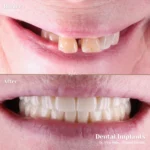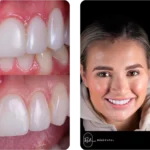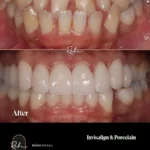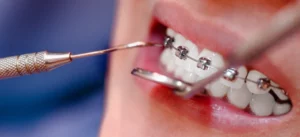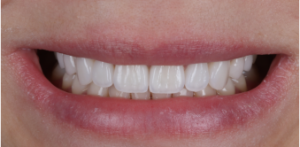Dental implants and prevention of jawbone loss
As a dentist, I’ve witnessed firsthand how the loss of a tooth can affect not only a patient’s smile but their overall oral health. One of the most concerning consequences of tooth loss that many patients are unaware of is jawbone loss. Fortunately, dental implants have become a game-changer in helping to prevent this issue. I want to take a moment to explain how dental implants can preserve your jawbone health and why they are such an important part of modern dentistry.
Understanding Jawbone Loss After Tooth Loss
When a tooth is lost (whether due to decay, trauma, or gum disease) the jawbone underneath the missing tooth begins to deteriorate. This happens because the natural tooth root no longer stimulates the bone when you chew or bite. The jawbone relies on this pressure to maintain its density and strength. Without it, the bone begins to resorb or shrink, leading to a number of oral health problems. Over time, this can cause changes in your facial structure, such as a sunken or aged appearance, and even make it more difficult to replace lost teeth in the future.
At Ruh Dental, we see patients who are concerned about tooth loss and the impact it might have on their overall appearance and well-being. What many people don’t realize is that the key to preventing further complications, including jawbone loss, lies in replacing the lost tooth with something that mimics the function of the natural tooth root. That’s where dental implants come in.
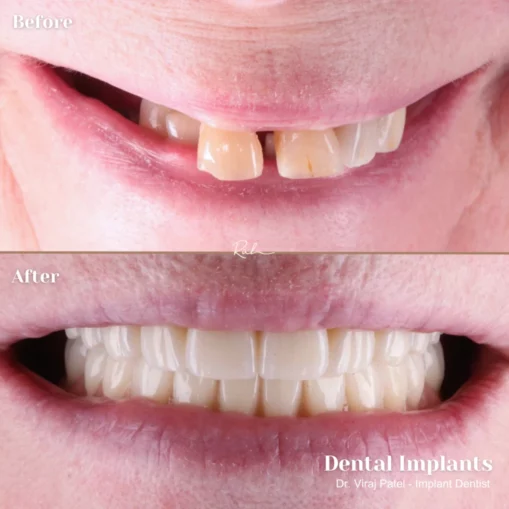
The Role of Dental Implants in Preventing Jawbone Loss
Dental implants are titanium posts that are surgically placed into the jawbone, where the natural tooth root once was. They provide a stable foundation for a crown, bridge, or even dentures. What makes implants so unique and effective in preventing jawbone loss is their ability to mimic the natural function of a tooth root.
When I place a dental implant in a patient’s jaw, it integrates with the bone through a process called osseointegration. This is essentially a biological process where the titanium post fuses with the jawbone, creating a bond that’s strong and stable. This bond stimulates the bone, just like a natural tooth root would, which helps to preserve the jawbone’s integrity. The more we use the bone through normal chewing and biting, the more we help it maintain its strength and density.
By preventing bone resorption, dental implants help to preserve the natural shape of your face and jaw, ensuring that your smile not only looks great but stays functional for years to come.
Why Choose Dental Implants at Ruh Dental?
At Ruh Dental, we prioritise not only the aesthetics of your smile but also the long-term health of your teeth and jawbone. Here’s why dental implants are a fantastic choice for most patients:
- Restored Functionality – Dental implants are designed to function just like natural teeth. Whether you’re chewing or speaking, they provide the stability you need for everyday tasks.
- Aesthetic Appeal – Implants look and feel just like your natural teeth. The crown placed on top of the implant is custom-designed to match the size, shape, and color of your existing teeth, ensuring a seamless blend with your smile.
- Preventing Further Bone Loss – As mentioned earlier, implants provide essential stimulation to the jawbone, preventing further deterioration that can occur with traditional dentures or bridges that don’t offer the same bone-stimulating benefits.
- Durability – Dental implants are designed to last. With proper care, they can remain functional for decades, unlike bridges or dentures that may need to be replaced every few years.
- Improved Quality of Life – Losing a tooth can be more than just an aesthetic issue; it can affect your confidence and your ability to eat your favorite foods. Dental implants restore both functionality and self-esteem.
The Procedure: What to Expect
The process of getting dental implants typically involves multiple steps, but rest assured that each step is designed with your comfort and safety in mind.
- Consultation – During your initial consultation, I will assess your oral health, take X-rays, and determine if dental implants are a suitable option for you. We’ll also discuss any concerns you might have about the procedure.
- Placement of the Implant – The implant is surgically placed into the jawbone under local anesthesia. It may take a few months for the implant to fully integrate with the bone.
- Placement of the Crown – Once the implant has successfully fused with the bone, we’ll design and place a custom crown on top of the implant to restore the appearance and functionality of your tooth.
Throughout the entire process, we aim to make your experience as comfortable as possible. I am always available to answer any questions or concerns that arise during the treatment.
Conclusion: A Long-Term Solution for Oral Health
Dental implants are more than just a solution for a missing tooth—they are a long-term investment in your oral health. Not only do they restore the function and appearance of your smile, but they also help to maintain the health of your jawbone, preventing the many issues that can arise from bone loss.
If you’re struggling with tooth loss or are concerned about future bone loss, I encourage you to schedule a consultation with me at Ruh Dental. Together, we can explore the best options for preserving your oral health and ensuring that your smile remains strong and beautiful for years to come.
Remember, healthy teeth and a healthy jawbone are the foundation of a confident, radiant smile. Let dental implants be part of that foundation.





